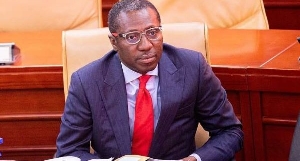 The report said underreported taxes have seen a continuous growth since 2016
The report said underreported taxes have seen a continuous growth since 2016
The Ghana Chamber of Bulk Oil Distributors (CBOD) 2019 Ghana Petroleum Industry Report has noted that in the area of the petroleum tax revenue shortfall movement, unexplained variances between the expected tax receipts and actual tax receipts grew by 11% in 2019 compared to 2018.
The report said underreported taxes have seen a continuous growth since 2016.
“This, coupled with the growth in unaccounted stocks in 2019, presents a major cause of concern for government revenue and national security,” it said.
The growth of such a huge underground economy and the bleed to the fiscal purse is a danger to Ghana’s pursuit of a country without aid, noted the report.
It further stated that the Minister of Finance reported to parliament that an amount of GHS3,573.84mn was realized in Energy Sector Levy Act (ESLA) receipts for 2019. This excludes Public Lighting Levy and National Electrification Scheme Levy which are tax components of ESLA chargeable on power consumption and not petroleum products.
“This position is at variance with computed ESLA receipts earned, based on NPA confirmed 2019 OMC performance data less exemptions and downward variations, which indicates that Ghs3,982.87mn should have been collected.
“The reported shortfall in government’s reported ESLA receipt was GHS409.03mn for 2019 after adjusting for exemptions. This situation is worse than the variances recorded in 2016, 2017, and 2018, respectively.
“Further analysis of the variance shows that the under-reported taxes for the PSRL, when compared to the expected receipts, was 47% in 2019, whilst EDRL and Road Fund reported a shortfall of 5%, respectively.
“The observations in the various elements of ESLA is of a major concern and requires committed and honest policy interventions to reverse the tide.”
The report further indicated that over-concentration of executive power in the President has led to a situation where heads of many state institutions, including those in the energy sector, such as the Ghana National Petroleum Corporation (GNPC), the Volta River Authority (VRA), and the Electricity Company of Ghana (ECG) are treated as part of the political establishment, and dispatched with the out-going government, sometimes without enough time to handover properly.
The report said the situation, no doubt, comes with the risk of losing institutional memory and compromising the efficiency and effectiveness of such state institutions.
“Ghana, in 2008, opted for the ‘separation of functions’ model of industry regulation, and in 2011, established the Petroleum Commission.
“However, the country’s institutional arrangements bear a lot of the hallmarks of Argentina’s, in terms of how the nature of the country’s political settlement tends to undermine state institutions, including those in the energy sector,” the report said.
It added that “It is recalled that, when in 2007, Ghana made its landmark Jubilee discovery, a petroleum desk was set up at the presidency, to lead the process of developing the governance framework for the sector, with the sector ministry playing a subservient role. The result was that, as at the time the country went into the 2009 political transition, not much memory and capacity had been built or retained in the sector Ministry. Similarly, over-concentration of executive power in the President has led to a situation where heads of many state institutions, including those in the energy sector, such as GNPC, VRA, ECG, etc., are treated as part of the political establishment, and dispatched with the out-going government, sometimes without enough time to handover properly. The situation, no doubt, comes with the risk of losing institutional memory, and compromising the efficiency and effectiveness of such state institutions.
“An analysis of the alignment between the Africa Mining Vision (AMV) and the status of Ghana’s governance framework for its natural resources, undertaken by UNDP (2015), revealed that, so far as the building of human and institutional capacity is concerned, Ghana is not doing badly.
“The UNDP Report provides evidence of a deliberate policy and strategy to develop and promote a knowledge-driven competitive petroleum economy, borne out of the broad array of institutions established to pursue the country’s petroleum sector policies.
“They list institutions, such as the Ministry for Energy, Petroleum Commission, the Ghana Geological Survey Authority, National Development Planning Commission (NDPC), The Environmental Protection Agency (EPA), Forestry Commission (FC), Ghana Revenue Authority (GRA), and CSOs, as strategic institutions mandated or positioned to work to ensure that Ghana remains a knowledge bastion in the petroleum economy.
“The Report, however, points out that, institutional weaknesses, overlaps and misalignment are rife in Ghana’s petroleum sector, and these require urgent attention to keep the country on track to achieving its policy goals for the sector.”












